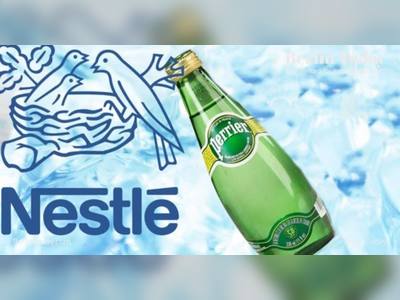Jaguar Land Rover Halts US Deliveries Amid Trump’s Tariff Policies
The British automaker pauses shipments to the US in response to elevated import tariffs imposed by the Trump administration.
In a significant move, British car manufacturer Jaguar Land Rover (JLR) has temporarily halted deliveries of its vehicles produced in the United Kingdom to the United States.
This decision comes as the company seeks to understand and address the repercussions of the substantial import tariffs recently enacted by President Donald Trump.
On April 3, 2025, the Trump administration increased tariffs on foreign automobiles from 2.5% to 25%, impacting not only European and Asian manufacturers but also US automakers with international supply chains.
This policy shift has stirred multiple global reactions within the automotive industry, as manufacturers navigate new trade conditions.
According to a spokesperson for JLR, the pause in shipments will last through April.
The spokesperson noted, "The USA is an important market for JLR's luxury brands.
While we work to clarify the new trading conditions with our business partners, we are taking some short-term measures, including a delivery halt this month, as we develop our medium- to long-term plans.” Currently, JLR maintains sufficient stock levels in the US, but the future of its deliveries remains uncertain due to the sharp increase in import costs.
Jaguar Land Rover is one of the largest auto manufacturers in the UK, selling approximately 400,000 vehicles annually, with nearly a quarter of sales generated from the US market.
The UK automotive industry is closely monitoring these developments, as the United States represents the second largest export market for British cars after the European Union, accounting for roughly 20% of UK vehicle exports.
Extended delivery pauses could exert strain on the entire UK automotive sector, which employs around 200,000 people.
In addition to JLR, other automotive manufacturers are also becoming increasingly affected by the new US tariffs.
Nissan, another key player, announced it would no longer accept new orders from the US for its Infiniti QX50 and QX55 SUV models, which are manufactured in Mexico at the COMPAS plant—a joint venture with Mercedes-Benz.
A spokesperson confirmed that production for other markets will continue, but the financial viability of exporting these models to the US under the new tariffs could not be sustained.
Additionally, Nissan has adjusted its production schedule in the US, halting operations at its Smyrna, Tennessee plant for the Rogue SUV to just two shifts, following a previously announced reduction in workforce.
The company is grappling with challenges related to an aging model lineup and a lack of hybrid vehicles, exacerbated by the newly imposed tariffs.
New CEO Ivan Espinosa aims to shorten development timelines for new models to maintain competitiveness in a challenging marketplace.
This decision comes as the company seeks to understand and address the repercussions of the substantial import tariffs recently enacted by President Donald Trump.
On April 3, 2025, the Trump administration increased tariffs on foreign automobiles from 2.5% to 25%, impacting not only European and Asian manufacturers but also US automakers with international supply chains.
This policy shift has stirred multiple global reactions within the automotive industry, as manufacturers navigate new trade conditions.
According to a spokesperson for JLR, the pause in shipments will last through April.
The spokesperson noted, "The USA is an important market for JLR's luxury brands.
While we work to clarify the new trading conditions with our business partners, we are taking some short-term measures, including a delivery halt this month, as we develop our medium- to long-term plans.” Currently, JLR maintains sufficient stock levels in the US, but the future of its deliveries remains uncertain due to the sharp increase in import costs.
Jaguar Land Rover is one of the largest auto manufacturers in the UK, selling approximately 400,000 vehicles annually, with nearly a quarter of sales generated from the US market.
The UK automotive industry is closely monitoring these developments, as the United States represents the second largest export market for British cars after the European Union, accounting for roughly 20% of UK vehicle exports.
Extended delivery pauses could exert strain on the entire UK automotive sector, which employs around 200,000 people.
In addition to JLR, other automotive manufacturers are also becoming increasingly affected by the new US tariffs.
Nissan, another key player, announced it would no longer accept new orders from the US for its Infiniti QX50 and QX55 SUV models, which are manufactured in Mexico at the COMPAS plant—a joint venture with Mercedes-Benz.
A spokesperson confirmed that production for other markets will continue, but the financial viability of exporting these models to the US under the new tariffs could not be sustained.
Additionally, Nissan has adjusted its production schedule in the US, halting operations at its Smyrna, Tennessee plant for the Rogue SUV to just two shifts, following a previously announced reduction in workforce.
The company is grappling with challenges related to an aging model lineup and a lack of hybrid vehicles, exacerbated by the newly imposed tariffs.
New CEO Ivan Espinosa aims to shorten development timelines for new models to maintain competitiveness in a challenging marketplace.
Translation:
Translated by AI
AI Disclaimer: An advanced artificial intelligence (AI) system generated the content of this page on its own. This innovative technology conducts extensive research from a variety of reliable sources, performs rigorous fact-checking and verification, cleans up and balances biased or manipulated content, and presents a minimal factual summary that is just enough yet essential for you to function as an informed and educated citizen. Please keep in mind, however, that this system is an evolving technology, and as a result, the article may contain accidental inaccuracies or errors. We urge you to help us improve our site by reporting any inaccuracies you find using the "Contact Us" link at the bottom of this page. Your helpful feedback helps us improve our system and deliver more precise content. When you find an article of interest here, please look for the full and extensive coverage of this topic in traditional news sources, as they are written by professional journalists that we try to support, not replace. We appreciate your understanding and assistance.











